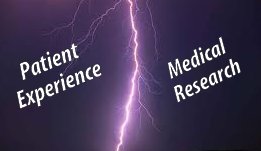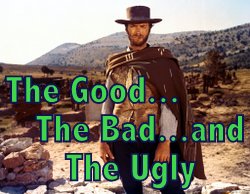Read what this Eye Doctor Observed in His T4-only Treated Patients!
 The following Guest Blog Post has been written Matt Dixon, OD who currently practices optometry in Perry, Georgia.
The following Guest Blog Post has been written Matt Dixon, OD who currently practices optometry in Perry, Georgia.
And not only did Dr. Dixon find himself with hypothyroidism, he made quite an interesting observation: 90% of his patients currently taking levothyroxine still have symptoms!
*******************
So how did an optometrist (eye doctor) become passionate and obsessive about spreading the news about what Janie calls the “Madness”?
My personal journey
I don’t quite fit the typical patient profile for a hypothyroid patient. I’m not female, no weight issues. I’ve always been very active. Yet when the symptoms started, I was clueless about where they came from or that they all could even be related.Â
All eye docs are trained to recognize thyroid eye disease, but truthfully, we focus on end-stage symptoms of Grave’s disease and the ophthalmopathy that often comes with it. And the typical optometrist does not encounter this very often. I had no clue that in my own practice, hypothyroidism was one of the most common conditions I see.Â
I suppose my first symptoms were body aches and pains. I had always experienced annoying back issues and I presumed that deterioration was setting in as I became older (40’s). I’ve also always been cold-natured. And by 2010, I noticed that I was struggling to make it through the work day. So by the end of the day, I was exhausted. In fact, I was no longer exercising, but found myself buried on the couch as soon as I came home, not getting up until I forced myself to climb into bed. Once I made it to bed, I couldn’t fall asleep and became addicted to Ambien. When the alarm clock woke me up the next morning, my wife had to literally pull me out of bed. If I ever forced myself to jog, I felt as if I was carrying a 25 lb. backpack. I also began to struggle with unexplainable stress and anxiety. Â
But what finally prompted me to seek answers was in fact eye-related. I was driving my kids home one night and the road in front of me actually moved suddenly from left to right. I hit the brakes and feared for our safety! My 17 year old son took the wheel and we made it home.
The madness for me began
My physician at the time is a well-liked internist in my community. I made an appointment for a checkup complete with blood work. I had some issues that I was concerned about, but neither the assistant nor doctor reviewed my symptoms.Â
I went back in a week and promptly received a prescription for Synthroid for hypothyroidism. With little discussion about the disease, I headed to the pharmacy. After a couple of weeks I began to improve. But I wanted to know more. I found the vast list of hypothyroid symptoms online and could not believe how many I was experiencing. I read enough to know that elimination of symptoms was the best way to dose the medication and focusing on TSH only would lead to under-treatment.Â
More importantly, if my doctor did not know any of my symptoms, how could he know when I was adequately treated? It was time for a new doctor.
Why do MD’s undertreat hypothyroidism?
My new doctor, unlike the previous one mentioned above, did review my symptoms and pledged to increase Synthroid until my TSH was reduced to around 1. I made sure they were paying attention to how I was feeling. Yes, I improved tremendously and found my happy place on brand name Synthroid. But I did move over to natural desiccated thyroid (NDT) and was even happier. As I adjusted to the new medication and found the correct dosage, I was able to get through the day with full energy and better mental focus. Most days I am symptom free.
In my area, I have yet to find more than a handful of docs who use NDT with any frequency. In my patient population, I rarely encounter a patient on NDT unless I have coached them to find a way to get the prescription. (Optometrists are licensed to prescribe oral medications but only for eye conditions)Â
Synthroid is the number one prescribed drug in America!
This is no accident and it will not be easy to battle the industry that achieved this coveted ranking. Doctors clearly have been trained to use synthetic T4-only meds as the treatment of choice, having been convinced that it is highly effective. Trying to change this at the medical school level will likely never happen. Attempts to enlighten physicians who are convinced that levothyroxine treatment and normalizing TSH levels is the best care will rarely lead to change. In fact, general practitioners and internal medicine docs will continue to get it wrong as long as endocrinologists and the American Thyroid Association (ATA) promote Synthroid religiously. Those who have seen the light, thanks to educators like Janie Bowthrope, will laugh (then cry) when they read the preview from the ATA’s published pocket guidelines http://eguideline.guidelinecentral.com/i/521958-ata-hypothyroidism-pocket-card How could these smart folks be so misinformed and allow patients to suffer?
What can one eye doctor do?
I’ve decided to review residual symptoms with every patient who comes into my office taking any form of hypothyroid medication. The majority of them have never reviewed such a list! Occasionally, a patient will not circle a “single symptom”, but more often patients will have “several” symptoms. I offer a 3-page summary of how hypothyroidism can be properly treated and, of course, I have them google STTM. After counseling over 100 of these patients (with only one complaint), many have returned to say thank you. Sadly, most patients get the push back from their MD and will remain on T4-only meds. I’ve also learned that if a physician has not studied the use of natural desiccated thyroid and is only committed to normalizing TSH, even the patients who convert to NDT may still suffer due to ineffective dosing.
I treat many patients with dry eye syndrome, which is very common and sometimes costly to treat. I am convinced that treating dry eye syndrome in a patient who is undertreated for hypothyroidism is like trying to change a flat tire on a car that is still moving. Every eye doctor should take an interest in this disease even if for this reason alone!
What can a patient do?
Refuse to tolerate inadequate treatments. Be passionate about your own health. Recognize that very good doctors with good intentions have been misinformed and may be facing tremendous pressure in our rapidly changing healthcare system. They do not quickly change deeply held beliefs when it comes to recommended treatments.
Study Janie’s recommendations. Make an effort to help your physician understand.  //www.stopthethyroidmadness.com/doctors-need-to-rethink/ When seeking a new doctor, nurse practitioner, physician’s assistant or osteopath, ask questions before you make an appointment. And do not assume that a board-certified endocrinologist is any more enlightened about this disease.
Final thoughts
My best analogy in attempting to drive home the importance of optimal treatment of hypothyroidism in my patients is to show them their vision as it would appear through a half-strength pair of glasses. I ask them if they would be happy to see like this. I ask them how quickly they would find a new eye doctor who prescribes full-strength glasses. They get it. I’m passionate about this disease and the patients who are literally suffering and feel uninvited to shout “I feel like crap!” to a doctor who won’t listen. Together, we will make a difference.
Matt Dixon, OD
***************
Dr. Dixon has practiced in Perry and Warner Robins, GA for over 25 years. He provides comprehensive eye care and frequently counsels patients regarding wellness. He has written numerous articles on eye disease and the business of optometry.
He is married to Jenna and has 3 children and 2 dogs. He is an aspiring songwriter and has recorded 2 albums. Thanks to NDT, he is quickly becoming a CrossFit addict. www.drmattdixon.com


